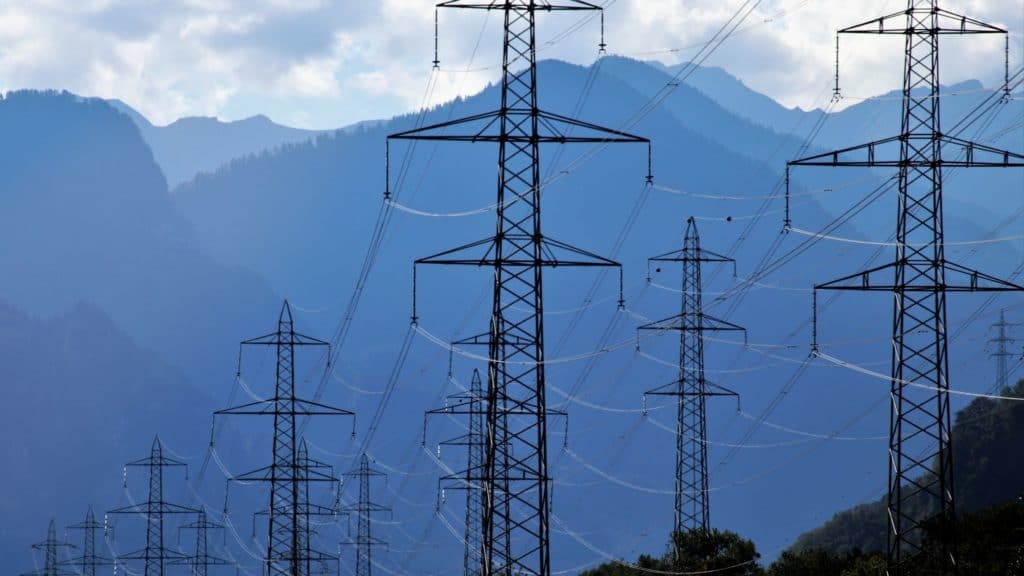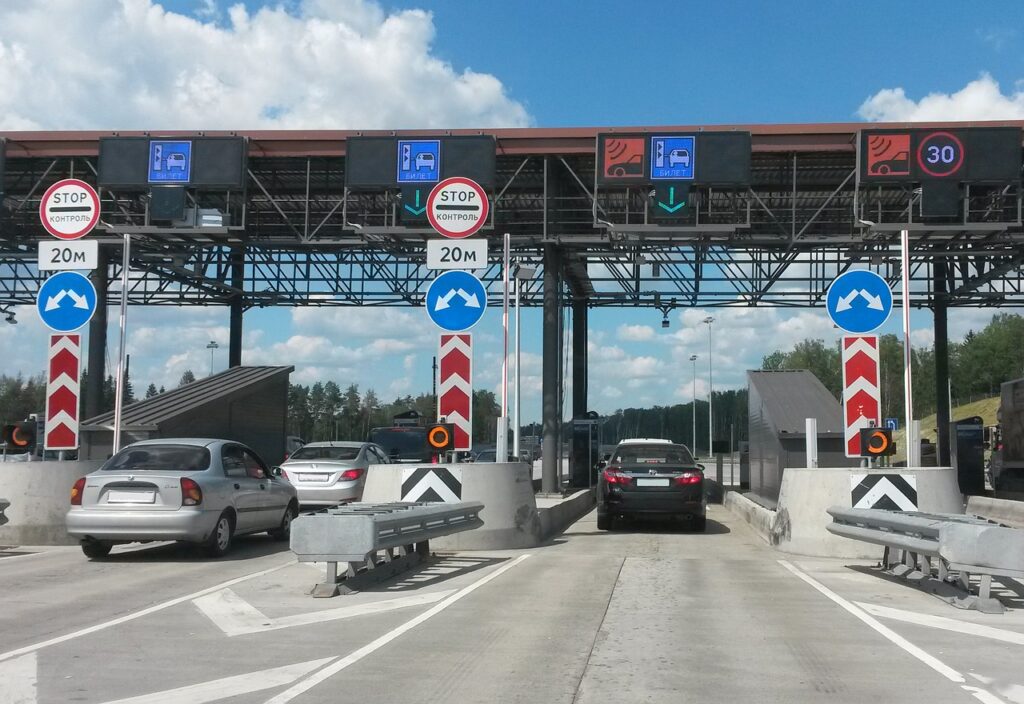An event that causes damage for which the state is liable is distinct from the act that confers the right for compensation. Introduction The concept of State aid covers all resources that are controlled by the state, regardless of the reason why such resources may be transferred to or put at the disposal of an undertaking. On 25 January 2022, […]
State Aid Law
Blog
State Aid Uncovered Blog
In Lexxion’s State Aid Uncovered blog, Prof. Phedon Nicolaides publishes weekly critical analyses of recent State aid judgments and decisions. Each post presents the key points of a court judgment or EU Commission decision, places it in the context of similar case law or practice, assesses the underlying reasoning and highlights any inconsistencies or contradictions.
Guest contributions from other State aid experts will also be published on the blog at irregular intervals to complement the content of the blog posts.
State Aid Uncovered ×
9. November 2021 |
State Aid Uncovered
by Phedon Nicolaides
Funds used in compensation mechanisms mandated by the state become state resources Introduction The Court of Justice has stressed repeatedly that any resource over which the state can exercise control becomes a state resource, regardless of whether it is managed by a public authority or a private entity. Member States, however, keep inventing novel and complicated arrangements in which mandated […]
7. September 2021 |
State Aid Uncovered
by Phedon Nicolaides
The compensation for public service obligations may include reasonable profit and incentives for cost reduction. Introduction Member States have discretion to define services they consider to be in the general economic interest [SGEI]. However, they need to justify that definition. The Court of Justice has ruled on numerous occasions that an SGEI has “special characteristics” that set it apart from […]
27. July 2021 |
State Aid Uncovered
by Phedon Nicolaides
A public service obligation must be imposed by an act of entrustment that describes in detail the terms of the obligation, identifies the undertaking that offers the service and lays down procedures for preventing over-compensation. Introduction The purpose of Commission Decision 2012/21 on services of general economic interest [SGEI] is, like the GBER, to exempt certain aid measures from prior […]
25. May 2021 |
State Aid Uncovered
by Phedon Nicolaides
As long as the compensation does not exceed the net extra costs of the universal service activities, it may be used to offset other costs. Introduction The rules on State aid for services of general economic interest [SGEI] are very generous because they allow both investment and operating aid. Yet, it is not easy to comply with those rules because […]
20. October 2020 |
State Aid Uncovered
by Phedon Nicolaides
Fiscal benefits to employees do not constitute State aid as long as they do not confer a direct or indirect advantage to their employers. Update on Temporary Framework: Number of approved and published Covid-19 measures, as of 16 October 2020: 302* Legal basis: Article 107(2)(b): 32; Article 107(3)(b): 255; Article 107(3)(c): 23 Average number of measures per Member State: 11 […]
7. January 2020 |
State Aid Uncovered
by Phedon Nicolaides
Commission approval of State aid to bail-out a bank does not give rise to right for compensation for creditors who are bailed-in. Introduction Investors in banks who lost their money have sought compensation both at EU and national level. So far, claims for damages at EU level have been unsuccessful. In some instances, the cases before EU and national courts […]
19. November 2019 |
State Aid Uncovered
by Phedon Nicolaides
Contractual obligation to provide compensation that does not exceed the loss of income is not State aid. Introduction When is a company entitled to compensation by the state? The easy answer is “when the state is liable for damage”. However, it may be possible for a company to claim compensation from the state when the state has assumed contractual obligations. […]
3. January 2017 |
State Aid Uncovered
by Phedon Nicolaides
Providers of public services must keep separate accounts. The parameters for calculating the compensation for the extra costs of public services must be determined in advance. Awards for damages do not constitute State aid. However, no damages can be awarded as a substitute for incompatible State aid. Introduction It is often asked how compensation measures for public service obligations […]
6. October 2016 |
State Aid Uncovered
by Phedon Nicolaides
When the state imposes obligations which create extra costs for a single undertaking, that undertaking suffers a disadvantage in relation to its competitors. The extra costs are abnormal because normal costs are those borne by all competitors. Introduction On 14 July 2016, the General Court rendered its judgment in case T 143/12, Germany v Commission.1 The outcome was a victory for […]
State Aid Uncovered ×
15. February 2022 |
State Aid Uncovered
by Phedon Nicolaides
An event that causes damage for which the state is liable is distinct from the act that confers the right for compensation. Introduction The concept of State aid covers all resources that are controlled by the state, regardless of the reason why such resources may be transferred to or put at the disposal of an undertaking. On 25 January 2022, […]
9. November 2021 |
State Aid Uncovered
by Phedon Nicolaides
Funds used in compensation mechanisms mandated by the state become state resources Introduction The Court of Justice has stressed repeatedly that any resource over which the state can exercise control becomes a state resource, regardless of whether it is managed by a public authority or a private entity. Member States, however, keep inventing novel and complicated arrangements in which mandated […]
7. September 2021 |
State Aid Uncovered
by Phedon Nicolaides
The compensation for public service obligations may include reasonable profit and incentives for cost reduction. Introduction Member States have discretion to define services they consider to be in the general economic interest [SGEI]. However, they need to justify that definition. The Court of Justice has ruled on numerous occasions that an SGEI has “special characteristics” that set it apart from […]
27. July 2021 |
State Aid Uncovered
by Phedon Nicolaides
A public service obligation must be imposed by an act of entrustment that describes in detail the terms of the obligation, identifies the undertaking that offers the service and lays down procedures for preventing over-compensation. Introduction The purpose of Commission Decision 2012/21 on services of general economic interest [SGEI] is, like the GBER, to exempt certain aid measures from prior […]
25. May 2021 |
State Aid Uncovered
by Phedon Nicolaides
As long as the compensation does not exceed the net extra costs of the universal service activities, it may be used to offset other costs. Introduction The rules on State aid for services of general economic interest [SGEI] are very generous because they allow both investment and operating aid. Yet, it is not easy to comply with those rules because […]
20. October 2020 |
State Aid Uncovered
by Phedon Nicolaides
Fiscal benefits to employees do not constitute State aid as long as they do not confer a direct or indirect advantage to their employers. Update on Temporary Framework: Number of approved and published Covid-19 measures, as of 16 October 2020: 302* Legal basis: Article 107(2)(b): 32; Article 107(3)(b): 255; Article 107(3)(c): 23 Average number of measures per Member State: 11 […]
7. January 2020 |
State Aid Uncovered
by Phedon Nicolaides
Commission approval of State aid to bail-out a bank does not give rise to right for compensation for creditors who are bailed-in. Introduction Investors in banks who lost their money have sought compensation both at EU and national level. So far, claims for damages at EU level have been unsuccessful. In some instances, the cases before EU and national courts […]
19. November 2019 |
State Aid Uncovered
by Phedon Nicolaides
Contractual obligation to provide compensation that does not exceed the loss of income is not State aid. Introduction When is a company entitled to compensation by the state? The easy answer is “when the state is liable for damage”. However, it may be possible for a company to claim compensation from the state when the state has assumed contractual obligations. […]
3. January 2017 |
State Aid Uncovered
by Phedon Nicolaides
Providers of public services must keep separate accounts. The parameters for calculating the compensation for the extra costs of public services must be determined in advance. Awards for damages do not constitute State aid. However, no damages can be awarded as a substitute for incompatible State aid. Introduction It is often asked how compensation measures for public service obligations […]
6. October 2016 |
State Aid Uncovered
by Phedon Nicolaides
When the state imposes obligations which create extra costs for a single undertaking, that undertaking suffers a disadvantage in relation to its competitors. The extra costs are abnormal because normal costs are those borne by all competitors. Introduction On 14 July 2016, the General Court rendered its judgment in case T 143/12, Germany v Commission.1 The outcome was a victory for […]
State Aid Uncovered ×
15. February 2022 |
State Aid Uncovered
by Phedon Nicolaides
An event that causes damage for which the state is liable is distinct from the act that confers the right for compensation. Introduction The concept of State aid covers all resources that are controlled by the state, regardless of the reason why such resources may be transferred to or put at the disposal of an undertaking. On 25 January 2022, […]
9. November 2021 |
State Aid Uncovered
by Phedon Nicolaides
Funds used in compensation mechanisms mandated by the state become state resources Introduction The Court of Justice has stressed repeatedly that any resource over which the state can exercise control becomes a state resource, regardless of whether it is managed by a public authority or a private entity. Member States, however, keep inventing novel and complicated arrangements in which mandated […]
7. September 2021 |
State Aid Uncovered
by Phedon Nicolaides
The compensation for public service obligations may include reasonable profit and incentives for cost reduction. Introduction Member States have discretion to define services they consider to be in the general economic interest [SGEI]. However, they need to justify that definition. The Court of Justice has ruled on numerous occasions that an SGEI has “special characteristics” that set it apart from […]
27. July 2021 |
State Aid Uncovered
by Phedon Nicolaides
A public service obligation must be imposed by an act of entrustment that describes in detail the terms of the obligation, identifies the undertaking that offers the service and lays down procedures for preventing over-compensation. Introduction The purpose of Commission Decision 2012/21 on services of general economic interest [SGEI] is, like the GBER, to exempt certain aid measures from prior […]
25. May 2021 |
State Aid Uncovered
by Phedon Nicolaides
As long as the compensation does not exceed the net extra costs of the universal service activities, it may be used to offset other costs. Introduction The rules on State aid for services of general economic interest [SGEI] are very generous because they allow both investment and operating aid. Yet, it is not easy to comply with those rules because […]
20. October 2020 |
State Aid Uncovered
by Phedon Nicolaides
Fiscal benefits to employees do not constitute State aid as long as they do not confer a direct or indirect advantage to their employers. Update on Temporary Framework: Number of approved and published Covid-19 measures, as of 16 October 2020: 302* Legal basis: Article 107(2)(b): 32; Article 107(3)(b): 255; Article 107(3)(c): 23 Average number of measures per Member State: 11 […]
7. January 2020 |
State Aid Uncovered
by Phedon Nicolaides
Commission approval of State aid to bail-out a bank does not give rise to right for compensation for creditors who are bailed-in. Introduction Investors in banks who lost their money have sought compensation both at EU and national level. So far, claims for damages at EU level have been unsuccessful. In some instances, the cases before EU and national courts […]
19. November 2019 |
State Aid Uncovered
by Phedon Nicolaides
Contractual obligation to provide compensation that does not exceed the loss of income is not State aid. Introduction When is a company entitled to compensation by the state? The easy answer is “when the state is liable for damage”. However, it may be possible for a company to claim compensation from the state when the state has assumed contractual obligations. […]
3. January 2017 |
State Aid Uncovered
by Phedon Nicolaides
Providers of public services must keep separate accounts. The parameters for calculating the compensation for the extra costs of public services must be determined in advance. Awards for damages do not constitute State aid. However, no damages can be awarded as a substitute for incompatible State aid. Introduction It is often asked how compensation measures for public service obligations […]
6. October 2016 |
State Aid Uncovered
by Phedon Nicolaides
When the state imposes obligations which create extra costs for a single undertaking, that undertaking suffers a disadvantage in relation to its competitors. The extra costs are abnormal because normal costs are those borne by all competitors. Introduction On 14 July 2016, the General Court rendered its judgment in case T 143/12, Germany v Commission.1 The outcome was a victory for […]












